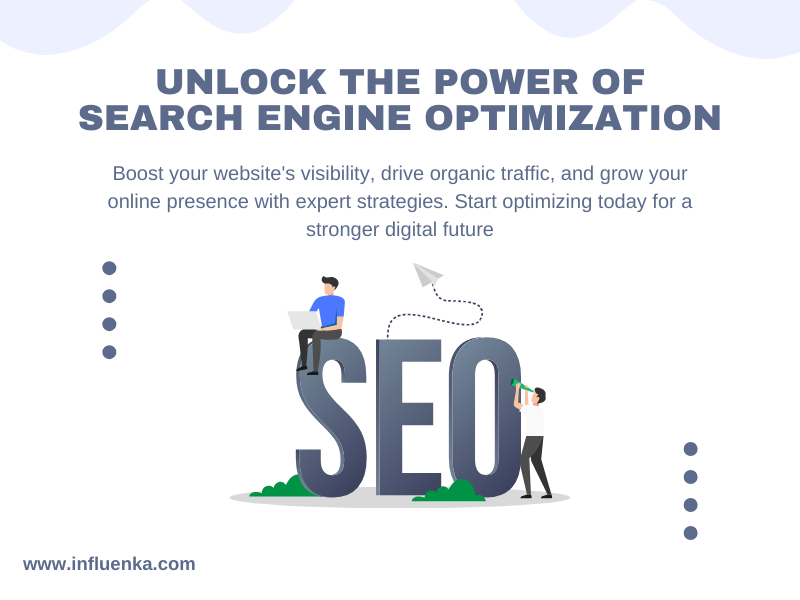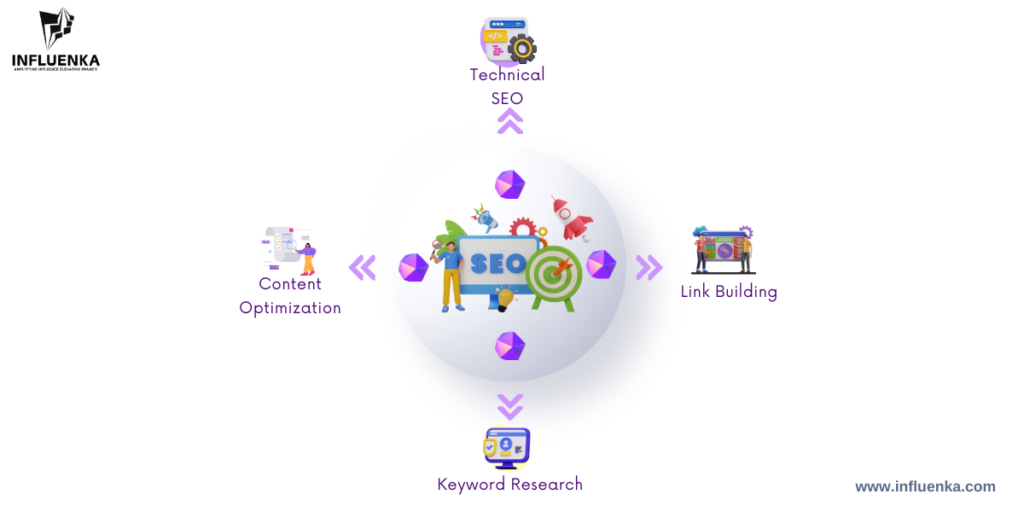What is SEO?
SEO as stands for search engine optimization is the effort made towards adjusting website and its content to rank higher on SERPS. SEO encompasses a list of processes that help in understanding such keywords, enhancing website content in terms of those keywords, and making other required alterations to improve the site rank on the search engine results page (non-paid traffic).
To define, then, SEO is a process of making search engines aware of what your site’s contents are about, so they can then present that content higher in the results of the relevant queries. It has now turned out to be convention in digital marketing that eight out of ten enterprises get their target audience engaged through this very practice
Why is SEO Important?
SEO plays a critical role in business brand establishment as well as personal make overs. Here’s why:
Increased Visibility: High ranking is beneficial in that customers are then more likely to have the product appear on their screens.
Boost in Traffic: SEO is about getting organic traffic, which is a better improvement than using advertising techniques.
Improved Credibility: When a website is ranked the content is viewed as being more credible.
Cost-Effective: However, SEO is a cost effective solution as it provides sustainable results for a long time.

How Does SEO Work?
It operates under a strategy that contains search engine optimization techniques that helps in the improvement of some features of a website to fit well with algorithms of certain search engines available in the world such as Google, Bing or Yahoo among others. Here’s a breakdown of key components:
1. On-Page SEO
Keyword Optimization: Thus, proper use of tagged words like “what is SEO” through such aspects as titles, headings and body texts.
Content Quality: The generation of useful, entertaining, and unique content that has genuine responses to the customers’ inquiries.
Meta Tags: Meta titles and descriptions – tips on how to create them in order to increase CTR.
2. Off-Page SEO
Backlinks: Creating high quality and preferably unique links from other reputable sites to add to its credibility.
Social Signals: Incorporation useable social networking site links on the website to pull in traffic and engage the populace
3. Technical SEO
Website Speed: Increasing loading speed or response time so that consumer experience will get better.
Mobile-Friendliness: Mobile web usability – the process of improving site experience for users accessing the Internet through portable devices.
Indexing: Creating a way of ensuring that the company’s pages are searchable or even crawl friendly by the search engines

1. Keyword Research:
Keywords should not be too general or too specific but should be closely related to the content that’s why keywords are the basis of SEO. Tools like Google Keyword Planner and SEMrush can help identify keywords such as:
- What is SEO?
- How does SEO work?
- Benefits of SEO
- SEO strategies for beginners
2. Content Optimization: The notion that ‘keywords’ define success in SEO is not true today; content quality is the key to search engine success. Make your material properly organized, useful, and containing keywords within the body of text.
3. Link Building: Some of the things that can be done include; Linking from other credible sources. Yes, guest blogging, partnerships, and most of the outreach campaigns should help
4. Monitor Analytics: It is recommended to monitor store metrics and changes by means of tools such as Google Analytics.
SEO Best Practices for Beginners
Focus on User Intent: Concern by the audience’s informational need.
Optimize Images: Alt text and compressed image of pictures should also be preferred, if possible, because it helps the page load faster.
Use Internal Linking: Link information that is relevant to enhance the hierarchical mechanism.
Update Content Regularly: Original content means that the site is update regularly, which signals to the search engines.
Secure Your Website: Enable HTTPS as people will have more trust in your site
Common SEO Mistakes to Avoid
Keyword Stuffing: If you misinterpret keywords such as ‘what is SEO’, it can actually do more harm than good.
Ignoring Mobile Users: Make sure your website is mobile friendly.
Skipping Technical SEO: Lack in some elements such as the speed of the site would also cost one their ranking.
Buying Backlinks: Instead, concentrate on gaining the so-called organic links
The Future of SEO
SEO is constantly evolving. Due to the modern focus on AI and, notably, voice search, the focus is made on natural language and the intention of the users. Continuity of trends is important and so is the ability of firms to change direction whenever it is necessary.
Conclusion
Thus, the knowledge of the what is SEO is fundamental to any digital marketer. It lasts also means that with proper SEO strategies, it will be easy for you to get the right results with your site and help your business realize its objectives. SEO, being a process that is influenced by learning and adaptation, can be the ace up your company’s sleeve
